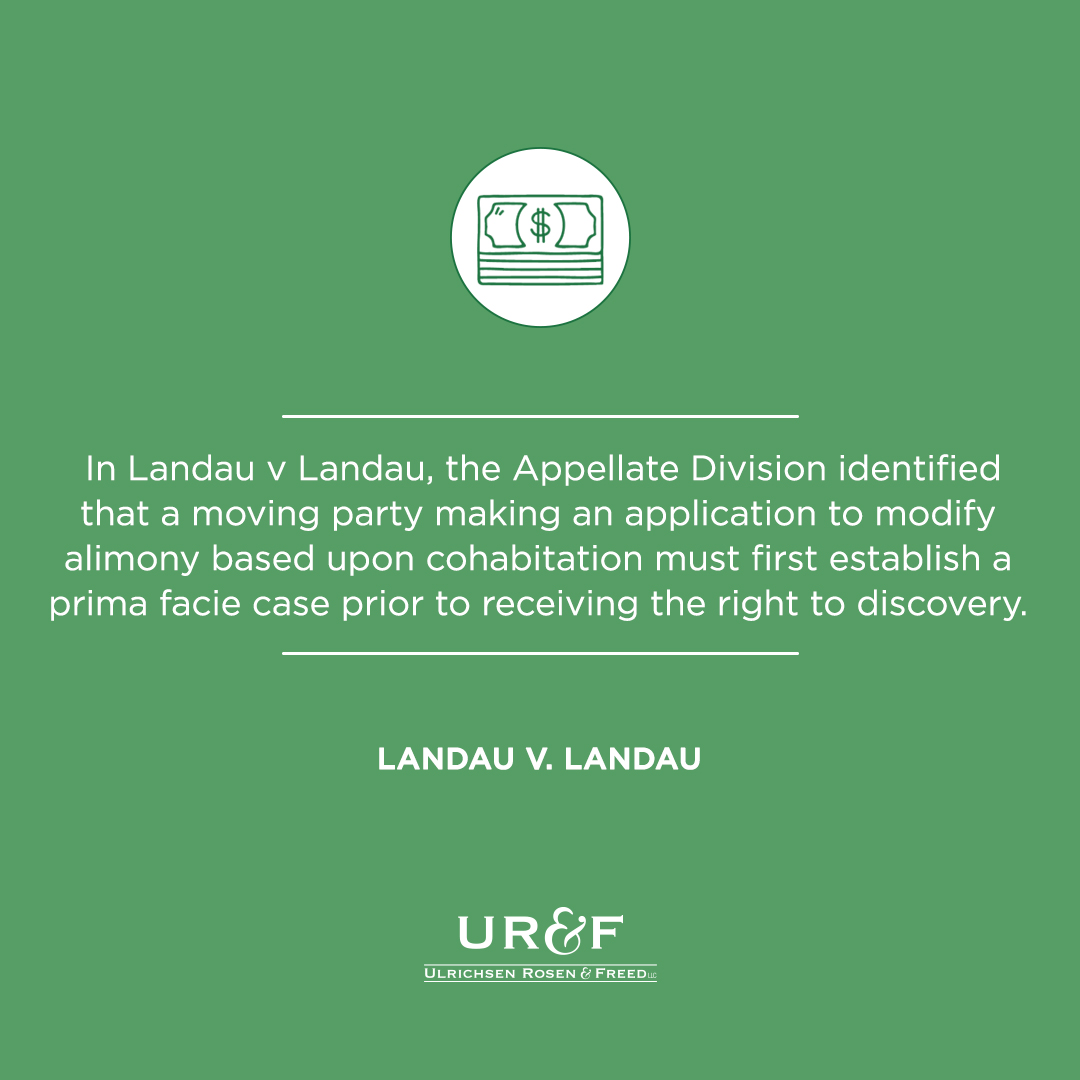Landau v. Landau
In Landau v Landau, the Appellate Division identified that a moving party making an application to modify alimony based upon cohabitation must first establish a prima facie case prior to receiving the right to discovery. For purposes of reference, prima facie means that evidence, when viewed unrebutted, would sustain a judgment in the moving party’s favor. The Landau decision is consistent with the seminal New Jersey Supreme Court case of Lepis v Lepis, which requires a moving party to make a prima facie case of changed circumstances before receiving the right to discovery.
The parties’ Marital Settlement Agreement in Landau stated that “Wife’s cohabitation as defined by then current statutory and case law shall be the basis for the Husband to file an application seeking a review and potential modification, suspension or termination of alimony.” Despite Husband’s allegations that Wife and her boyfriend traveled together, attended social activities together and regularly slept over at each other’s homes, the trial court found that the proofs submitted by Husband did not reach the level of a prima facie showing of discovery. Despite this ruling, the trial court permitted Husband the right to conduct broad and intrusive discovery to assist him in making prima facie showing of cohabitation.
The Appellate Division reversed the trial court’s order permitting discovery when a prima facie showing of cohabitation had not been established. Relying on the New Jersey Supreme Court’s directives set forth in Lepis, the Appellate Division did not alter the precedent that a moving party seeking to modify alimony needs to first establish a prima facie case of changed circumstances (i.e. cohabitation in this matter) prior to being granted rights of discovery.
The Landau case is important as it identifies the significant threshold of proving a prima facie case prior to receiving the right to broad discovery of the party that may be cohabitating. This threshold is necessary to balance the statutory rights of the moving party to modify alimony with the privacy interests of the party that is allegedly involved in a cohabitation relationship.
If you have questions regarding cohabitation, the attorneys at Ulrichsen Rosen & Freed LLC can assist you. Our attorneys recognize that every cohabitation case is unique and have significant experience advising clients how to best navigate issues surrounding cohabitation applications. Our firm is focused exclusively on the practice of family law and serves clients throughout New Jersey including clients residing in Mercer County, Somerset County, Hunterdon County, Burlington County and Middlesex County.


